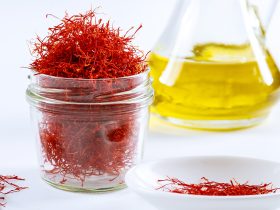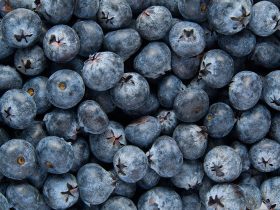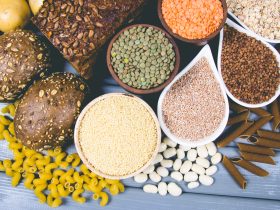Protein’s , carbohydrates, fats, and fiber are commonly recognized as the basic components of a nutritious diet. However, recent research suggests that protein may hold a particularly important role, especially as we age.
A study published in the American Journal of Clinical Nutrition involved nearly 50,000 female nurses, all of whom were middle-aged when the study began. Over the years, the participants were surveyed about their physical health, diet, and mental and cognitive health. The study concluded in either 2014 or 2016.
The findings of this extensive study indicate that higher protein consumption is strongly associated with healthy aging, particularly when the protein sources are plant-based.
This research highlights the significance of protein in maintaining health as we grow older and underscores the potential benefits of incorporating plant-based proteins into our diets.
What Does Healthy Aging Look Like?
In the context of the study, “healthy aging” is defined as an overall state of physical, mental, and cognitive well-being, free from major chronic diseases, memory impairment, or physical limitations.
Participants were considered to have aged healthily if they had:
- Good mental health: absence of psychological distress or symptoms of depression or anxiety.
- No memory impairments: preserved cognitive function without cognitive decline, such as dementia or Alzheimer’s disease.
- No major chronic diseases: absence of 11 specific chronic conditions, including cancer (excluding melanoma skin cancer), type 2 diabetes, heart attack (myocardial infarction), coronary artery bypass graft surgery or coronary angioplasty, congestive heart failure, stroke, kidney failure, chronic obstructive pulmonary disease (COPD), Parkinson’s disease, multiple sclerosis, and amyotrophic lateral sclerosis (ALS).
The study’s results demonstrated that individuals with a higher intake of plant-based protein were more likely to achieve healthy aging compared to those with a higher intake of animal-based protein.
However, it’s important to note that higher animal-based protein consumption was associated with better mobility during aging, although it also posed a higher risk for developing chronic diseases.
Therefore, while a balanced diet with adequate plant-based protein can contribute to healthy aging by reducing the risk of chronic diseases, the benefits of animal-based protein in maintaining mobility should be weighed against its potential health risks.
This emphasizes the importance of a diversified diet, tailored to individual needs and preferences, for achieving optimal health outcomes as we age.
How You Can Age Well With the Help of Protein
In the study, higher protein intake was associated with several positive age-related health outcomes, including maintaining muscle mass and reducing frailty.
While the precise mechanism behind this link is not entirely clear, it’s believed that protein consumption may trigger the production of muscle-building chemicals.
Protein may also play a role in mitigating sarcopenia, the natural loss of muscle mass and function that occurs with aging. Including 25-30 grams of high-quality protein in each meal can help prevent sarcopenia.
Furthermore, protein consumption may offer significant cognitive benefits, potentially helping to protect against cognitive decline. Protein aids in strengthening cognitive function by contributing to the structure of brain cells.
Neurotransmitters, like serotonin and dopamine, are produced from amino acids, which are the building blocks of proteins. These neurotransmitters play a role in managing mood, attention, memory, and thinking abilities.
Proteins also play a crucial role in forming the structure of brain cells and protecting against oxidative stress and inflammation, which can cause cognitive issues.
The study also found that higher consumption of plant-based proteins was associated with positive physical and mental health outcomes.
Not All Types of Protein Are Equal
Protein is a key component of a healthy diet, and while many people typically associate it with animal-based sources like meat, there are numerous plant-based options available as well.
These plant-based proteins can provide similar nutritional benefits without some of the potential downsides that come with animal protein consumption.
Studies have shown that when individuals replaced animal protein with plant protein, they experienced a lower risk of chronic disease, maintained good physical function, and had good mental health, ultimately leading to a healthier aging process.
Therefore, incorporating plant-based proteins into your diet can contribute to overall health and well-being.
However, it’s important to consider the types of protein sources you consume.
For example, excessive intake of red and processed meats, which are high in saturated fats, can have negative impacts on health, increasing the risk of heart disease and other chronic conditions. Thus, diversifying protein sources by including fish, poultry, dairy, and legumes can provide a range of essential nutrients and help maintain overall health.
While many Americans already consume sufficient protein, focusing on spreading out protein intake throughout the day and choosing healthier protein sources, particularly plant-based options, can provide additional health benefits in older age.
These benefits include essential nutrients, fiber, and beneficial antioxidant-rich plant compounds that support mental and physical well-being.
In summary, while animal-based proteins offer certain nutritional benefits, incorporating plant-based proteins into your diet can also be advantageous for overall health and well-being, especially as you age.
How Much Protein You Need?
Dietary guidelines vary based on age and activity level, but the USDA recommends that women aged 60 and older consume 5 to 6 ounces of protein per day, while men of the same age should aim for 5.5 to 6.5 ounces.
For older adults, since their overall caloric needs are lower, protein should make up a larger proportion of their total intake.
However, it’s possible to overconsume protein, which can lead to issues like constipation and kidney problems. When excess protein is consumed, the body eliminates it through urea in urine. If the kidneys can’t keep up with processing this excess protein, it can result in dehydration and even permanent kidney damage.
Therefore, it’s essential to balance higher protein intake with adequate fiber and fluids. It’s generally advised not to consume more than 2.0 grams of protein per kilogram of body weight.
For personalized protein intake recommendations, it’s advisable to consult with a healthcare provider.
While getting enough protein is important, it’s equally important to ensure you’re not consuming more than your body needs to maintain good health.
















Find Us on Socials